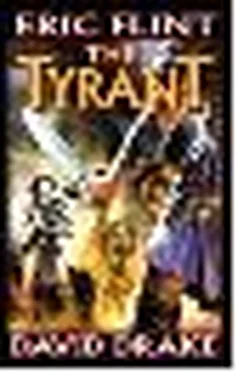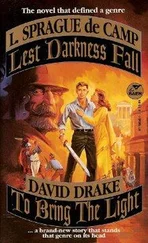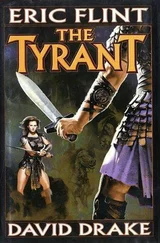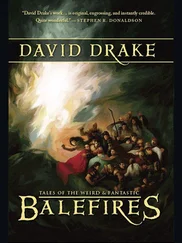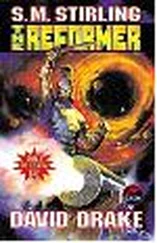David Drake - Tyrant
Здесь есть возможность читать онлайн «David Drake - Tyrant» весь текст электронной книги совершенно бесплатно (целиком полную версию без сокращений). В некоторых случаях можно слушать аудио, скачать через торрент в формате fb2 и присутствует краткое содержание. Жанр: Боевая фантастика, на английском языке. Описание произведения, (предисловие) а так же отзывы посетителей доступны на портале библиотеки ЛибКат.
- Название:Tyrant
- Автор:
- Жанр:
- Год:неизвестен
- ISBN:нет данных
- Рейтинг книги:5 / 5. Голосов: 1
-
Избранное:Добавить в избранное
- Отзывы:
-
Ваша оценка:
- 100
- 1
- 2
- 3
- 4
- 5
Tyrant: краткое содержание, описание и аннотация
Предлагаем к чтению аннотацию, описание, краткое содержание или предисловие (зависит от того, что написал сам автор книги «Tyrant»). Если вы не нашли необходимую информацию о книге — напишите в комментариях, мы постараемся отыскать её.
Tyrant — читать онлайн бесплатно полную книгу (весь текст) целиком
Ниже представлен текст книги, разбитый по страницам. Система сохранения места последней прочитанной страницы, позволяет с удобством читать онлайн бесплатно книгу «Tyrant», без необходимости каждый раз заново искать на чём Вы остановились. Поставьте закладку, и сможете в любой момент перейти на страницу, на которой закончили чтение.
Интервал:
Закладка:
"Don't worry, Sergeant, I know the way." Demansk smiled. "Just pretend you're riding ahead of me."
"Ah, thank you, sir." The sergeant scurried to his velipad. By the time he'd mounted, Demansk had already started trotting off.
It had been years since Demansk had visited the Knecht villa, and in times past he'd always approached it from another direction — the southeast, where he and Druzla had maintained a large villa of their own in the capital. After his wife died, Demansk had maintained the place — having a prestigious villa in the capital was a necessity for prominent noblemen of the Confederacy — but had henceforth spent little time in the capital.
Druzla had loved Vanbert, with its endless rounds of salon discussions, artistic pursuits and dramatic diversions. So Demansk and his wife had visited the city often, and their villa had become in fact as well as in theory their second home. Demansk had been quite willing to indulge his wife's tastes, even if he didn't particularly share them.
As he moved toward it, down one of the spacious boulevards which graced the richest parts of the city, Demansk studied his destination. The Knecht villa was magnificent, not simply grandiose, and the setting sun illuminated it beautifully. Toman Knecht had employed the finest architects to design it, the best craftsmen to build it — and had then spent a large fortune to fill it with what was, without question, the finest and largest collection of art in the world.
Given the size of his fortune, after all, Toman Knecht could afford to do so. He was thought at the time to be the richest man in the world — even after he built and accoutered the villa — and probably was. Nor, since Toman's death five years earlier, was there any sign that his family's wealth had declined. His widow, Arsule, shared all of Toman's extravagant tastes, true; but she also shared — even exceeded — his uncanny ability to amass and retain the wealth which made it possible. And she employed a financial adviser who was immensely capable, as Demansk well knew. His name was Prit Sallivar, and he was Demansk's own financier as well.
Demansk sighed. That was part of the knot he was trying to untangle — or cut in half, to be precise.
Prit Sallivar, along with many others, occupied a gray area in Confederate society. Vanbert's expansion had, over the past two centuries, produced a rather large class of wealthy men risen from the gentry — risen far above the gentry, measured simply in terms of money. But they were not part of the aristocracy, a fact which was driven home to them whenever, as the expression went, they "acted above their class." Some of them could, given time and the expenditure of half their fortune, leverage their way into the nobility. Albrecht's own grandfather had done so; effectively buying his grandsons — if not himself or his own sons — a seat in the Council by marrying a widow whose splendid title had been turned into a hollow shell by her former husband's profligacy.
Yes, some did. And, as was the way of things, typically became the most ferocious defenders of aristocratic privilege thereafter. But most did not. There simply weren't enough eligible marriage prospects; and, while the Council's Registrar could usually be bribed, he did not come cheaply. "Buy a Registration" was another popular slang expression in the Confederacy, used whenever someone referred to a financial enterprise that was either beyond one's wildest fancy or, if it wasn't, would be flat-out ruinous.
Prit Sallivar himself had never bothered with the business. Though he resented the constant little humiliations visited upon him, he had never seen the logic of wasting his wealth in order to obtain a title. He simply kept his social contacts in the aristocracy — outside of business, where any number of noblemen were willing to allow him entry through the back door of their villas — to that relatively small layer of the nobility which had a relaxed attitude about "one's station in life."
Demansk himself was one such. But another — and by far the most prominent — was Arsule Knecht. In this, if not in their shared enthusiasm for art, she and her former husband were diametrically opposite. Toman had employed the best financiers in the Confederacy, Prit Sallivar among them, and had then treated them much like he treated his servants. After his death, Arsule had swung open the front door of their mansion, and invited them in.
Demansk had never attended the salons and soirees and art exhibitions for which Arsule Knecht had become famous—"notorious" was a better word, at least among the aristocracy. His own wife Druzla had been one of Arsule's best friends, and would undoubtedly have enjoyed them. But Druzla had died two years before Toman, and Demansk had turned down all the subsequent invitations. Politely, but firmly. He didn't much enjoy such things himself and since his own prestige in Vanbert society rested on the "traditional virtues," he saw no point in eroding that position simply out of sentimentality.
"Traditional virtues," he muttered under his breath. "I'm the toughest pig farmer in the land, and I can steal anybody's pigs — and do it in broad daylight, which makes me a nobleman instead of a thief."
Gods, I've gotten cynical. He could remember a time when he hadn't been. A time when he'd spent months, as a boy, eagerly trotting alongside his beloved grandfather as the fierce old man went about his business. Which, needless to say, was the business of managing an estate in the countryside — except, in time of war, when the farmer turned into a soldier. And led his huge armies with the same skill and intentness that he managed his huge farm.
In truth, Verice Demansk had been brought up more by his grandfather than his father. His own father had been. . of a different sort. "More modern," as he would say, on the rare occasions when he tore himself away from the endless squabbling and scheming in the Council to pay a brief visit to the ancestral estate.
In one thing, at least, Demansk's grandfather and father had shared the same attitude: neither of them had had much use for gentrymen, especially ones who were stinking rich. Outside of war, at least, where the grandfather prized their talents. The father, having spent as little time in the army as necessary for a man of his station, had even less use for them than that.
And here I am — in three generations! — scurrying to find their favor.
He suppressed the sour sentiment. True, with the exception of a few like Prit Sallivar, Demansk found the upper crust of the gentry even more distasteful than the aristocracy. Petty beyond belief; grasping; narrow; pompous — their pretensions at being patrons of the arts were rarely matched by any corresponding good taste — bah! There was practically no vice, certainly of the venal sort, of which they were not guilty.
The fact remained that, if Demansk's plans were to come to fruition, he would need to have that class of men in his camp. Squarely in the middle of it, too, not consigned to the outer ranks. He was about to launch a project never attempted in history — barely even conceived, in truth. A dictatorship built on money instead of land, and not even money gained by bribery and tax-gouging.
* * *
Demansk and his little escort reached the outer gates of the villa. A squad of Knecht household soldiers trotted out to greet them — as well as, of course, to determine their bona fides.
"Tell Lady Knecht that Verice Demansk would enjoy a moment of her time," he growled. Then, after the squad leader dispatched a man to convey the message, grit his teeth.
And why'd you have to be so curt about it? Stop lying, Verice. It's not the guard's fault if the prospect of seeing Arsule again — gods, what's it been now? ten years? — makes you edgy.
Читать дальшеИнтервал:
Закладка:
Похожие книги на «Tyrant»
Представляем Вашему вниманию похожие книги на «Tyrant» списком для выбора. Мы отобрали схожую по названию и смыслу литературу в надежде предоставить читателям больше вариантов отыскать новые, интересные, ещё непрочитанные произведения.
Обсуждение, отзывы о книге «Tyrant» и просто собственные мнения читателей. Оставьте ваши комментарии, напишите, что Вы думаете о произведении, его смысле или главных героях. Укажите что конкретно понравилось, а что нет, и почему Вы так считаете.
